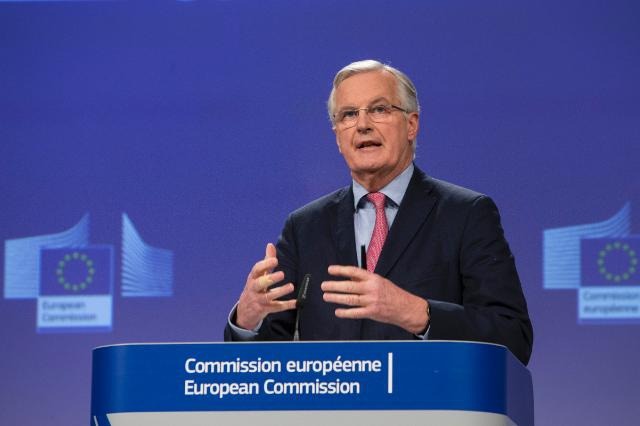At the press conference on Friday in Brussels, Michel Barnier, European Commission chief negotiator for Article 50 negotiations with the UK, summarized the latest round of negotiations on Brexit. The round this week was the first one since last December when the negotiators from both sides agreed on a join report on UK’s “orderly withdrawal” from the EU. The negotiations are conducted in phases - an arrangement which should be to EU’s advantage - but the start of the second phase did not result in any progress.
“There is no time to lose,” Barnier stressed, “now is the time to make decisions.” He referred to a tight time schedule with a looming deadline in March for an agreement on the transition period and October-November when the withdrawal agreement should be ready for ratification.
The transition period was requested by the UK and will end on 31 December 2020. According to the EU position, during the transition period the whole of the EU acquis will continue to apply to the UK as if it were a member state. Changes to the acquis adopted by EU institutions, bodies, offices and agencies during that period would also apply in the UK.
The European Commission published last Wednesday a position paper on transitional arrangements in the withdrawal agreement. The paper translates into legal terms the principles laid down in the previous guidelines and negotiating directives adopted by the European Council.
Barnier did not hide that he has some problem understanding UK’s position on the transition period. “Frankly, I’m surprised by these disagreements. The EU position is logical. In demanding the benefits of the single market, the custom union and common polices, UK must accept all the rules and obligations until the end of the transition period”.
He listed the disagreements with UK. While UK recognizes that the right of free movement of persons will fully apply during the transition period, it does not want to extend those rights to people who arrived during the period. UK requests also the right to oppose new regulation which enters into force during the transition.
Given the disagreements, there is no transition today, he warned. There is nothing to negotiate about as regards the transition period. It was requested by the UK and is for the benefit of people and businesses to give them time to prepare for Brexit, he explained.
The position paper includes an “enforcement” clause which states that the Court of Justice of the European Union shall have jurisdiction as provided for in the treaties. This apparently means that ordinary infringement procedures against UK in case of breaches of EU law during the transition period will be suspended because of its limited duration.
But UK has no reason to be worried, Barnier said and referred to the fact that UK is among the countries which relatively few infringement procedures.
Barnier was also clear on the issue of the future border relations between UK and Ireland. It is necessary to avoid a “hard” border, to preserve north-south cooperation on the island and protect the Good Friday Agreement from 1998 which ended sectarian violence in Northern Ireland. The withdrawal agreement will have to guarantee this.
The Brussels Times

